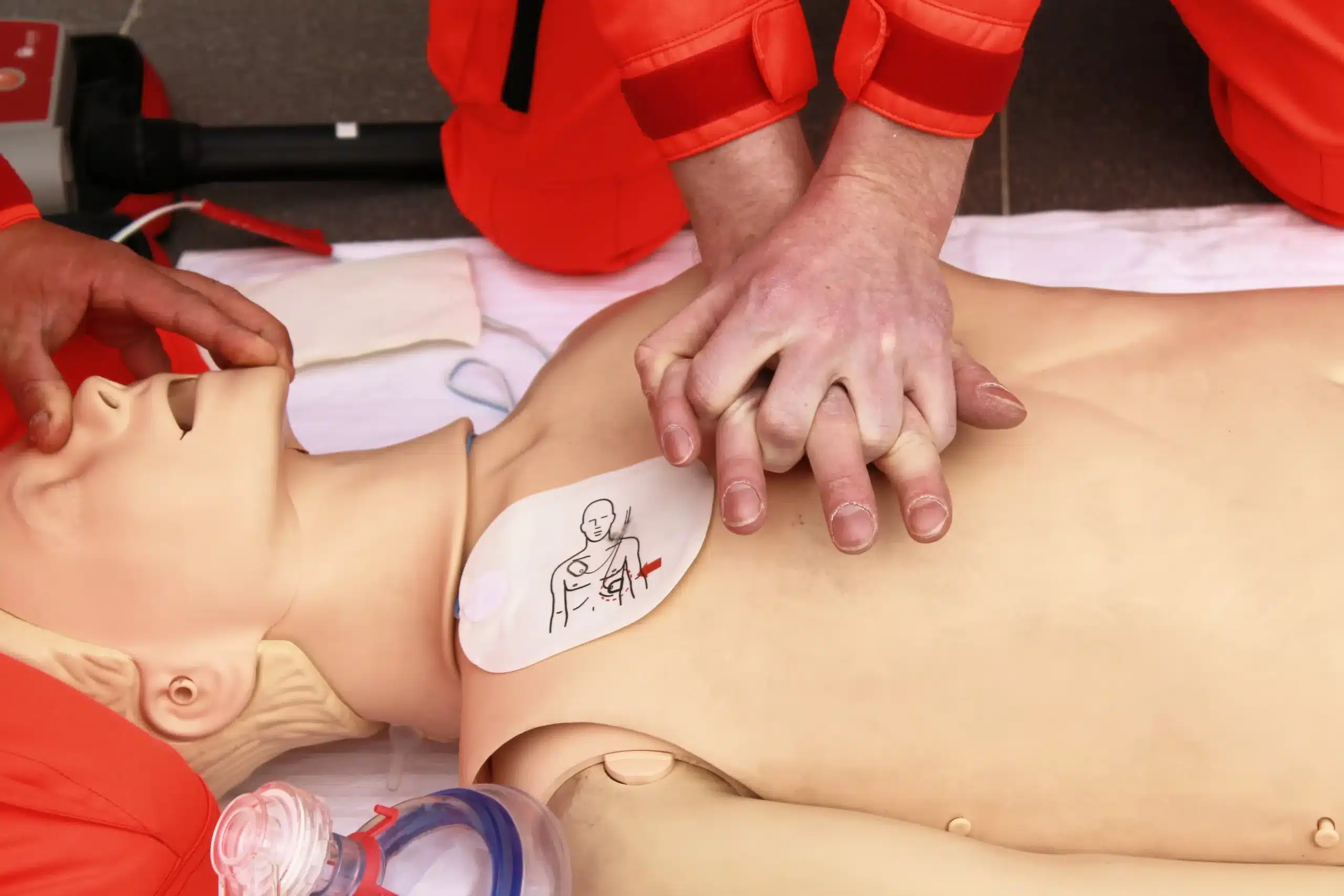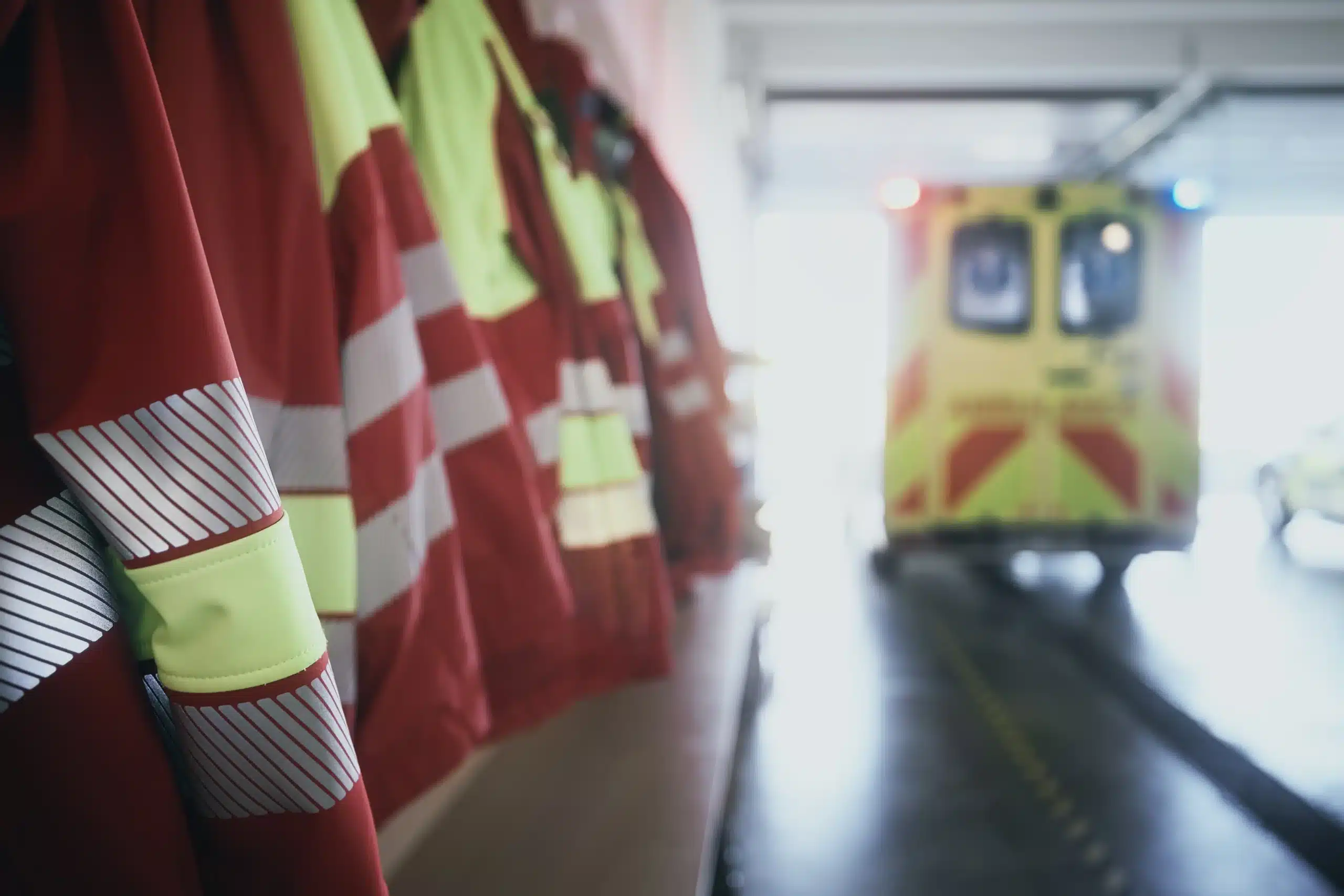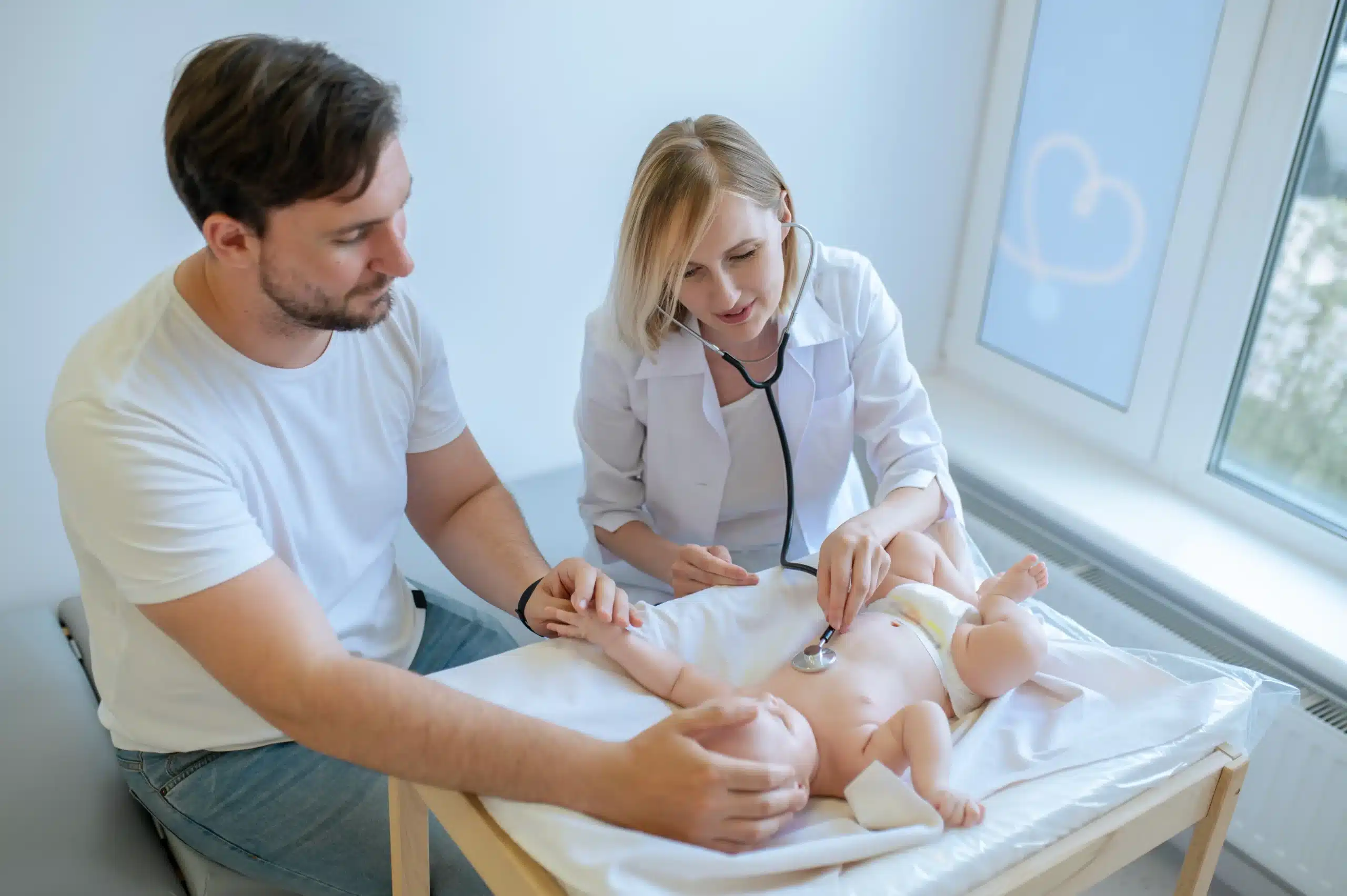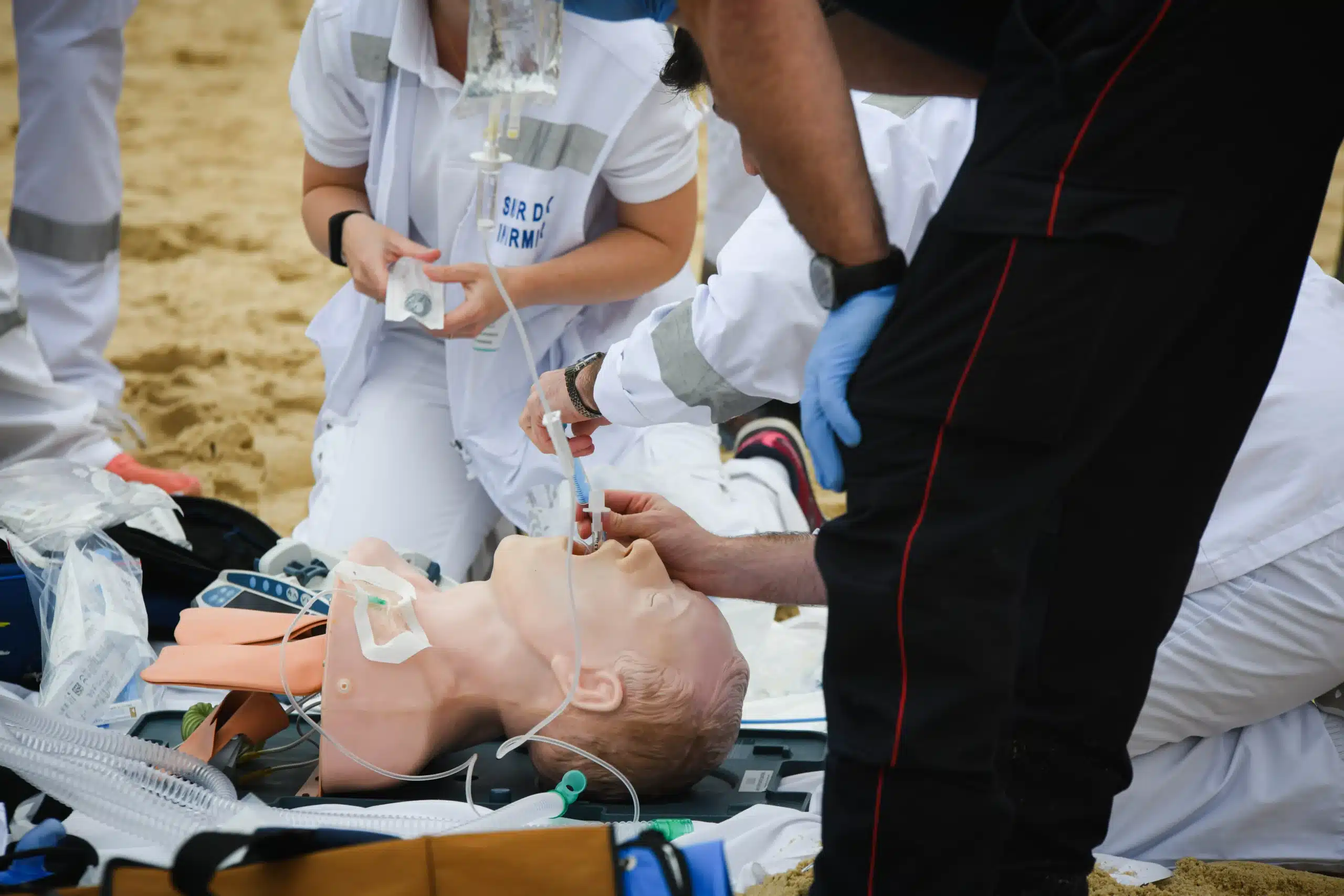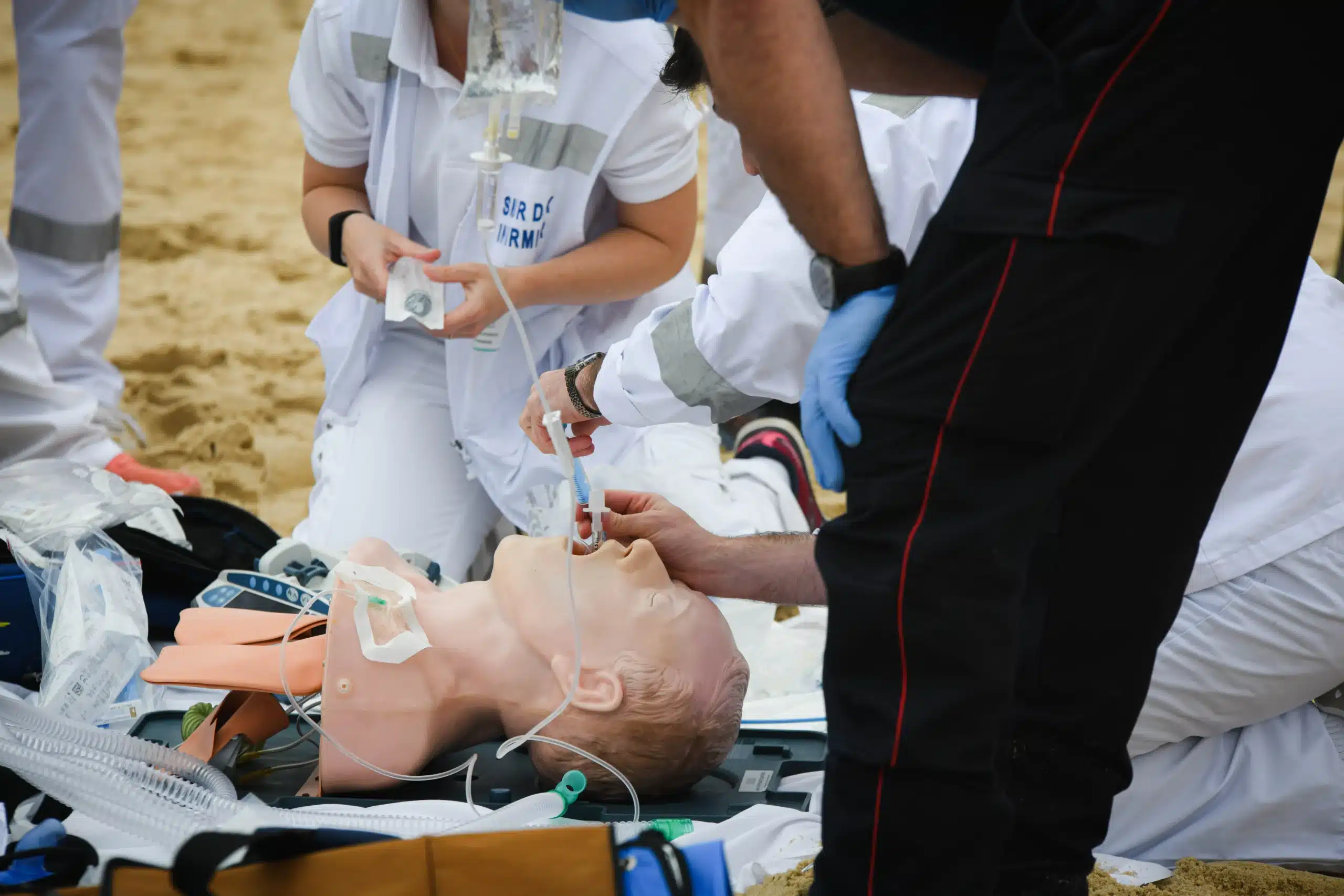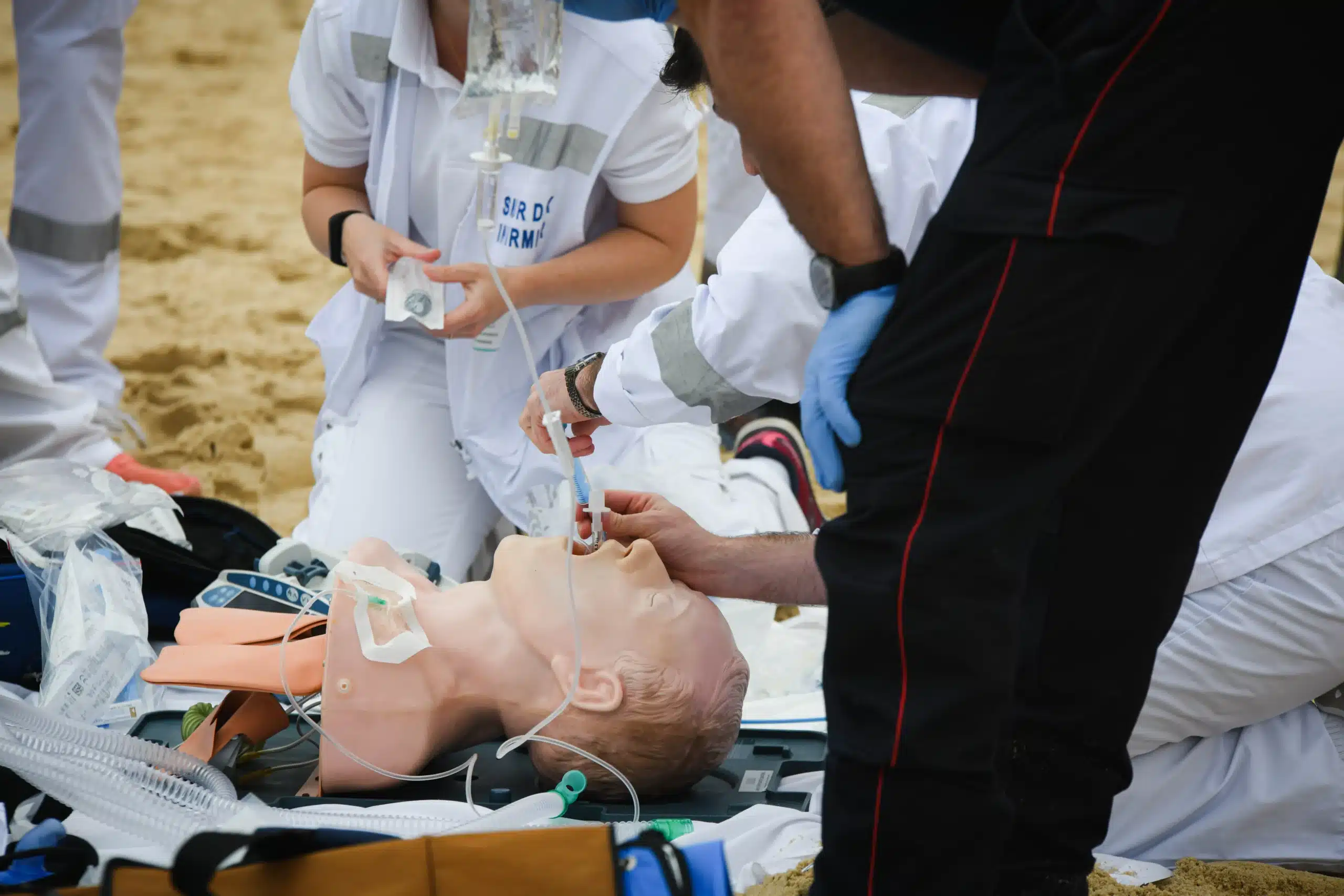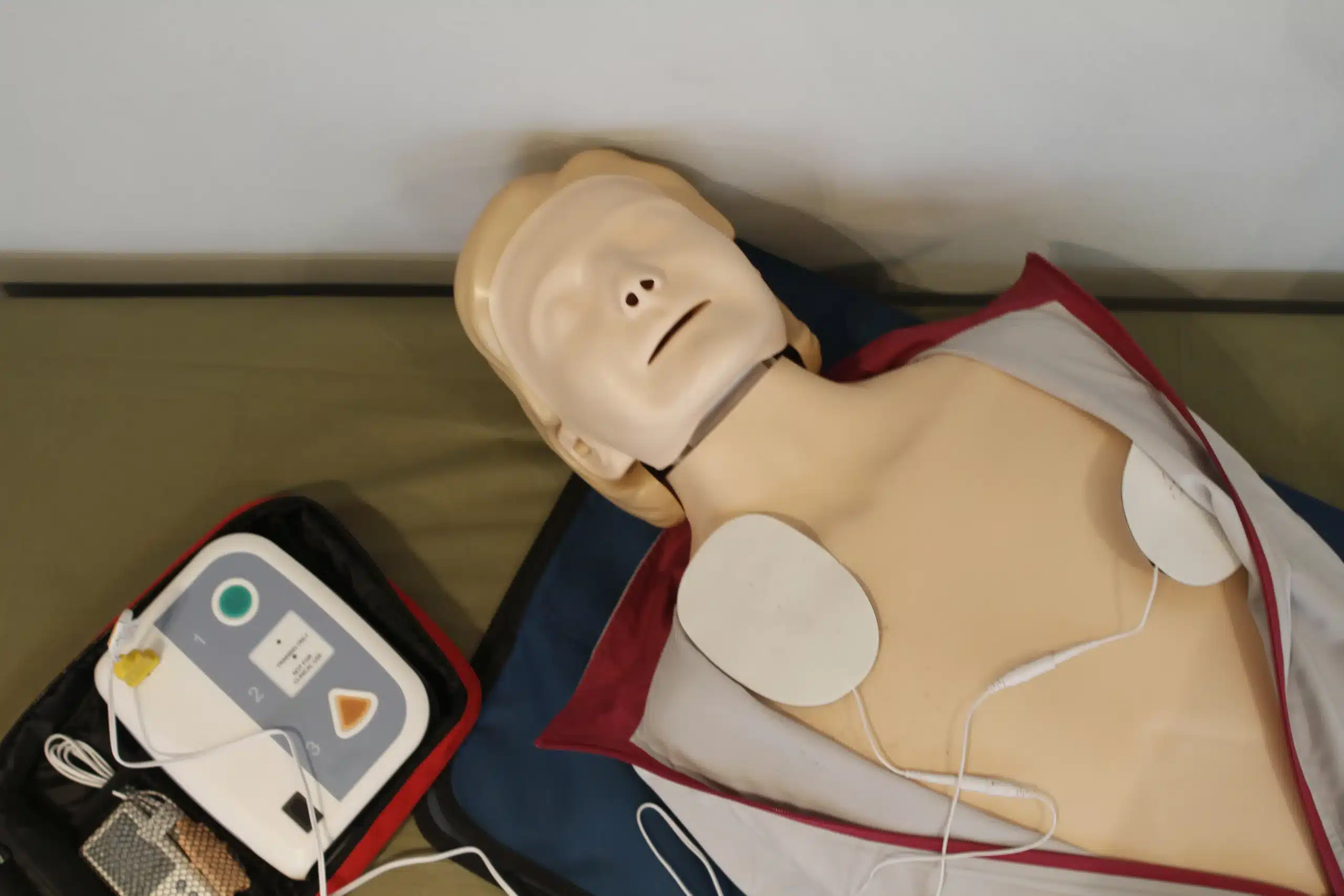In a medical emergency, seconds can matter. CPR certification in Dublin equips you with the skills to respond quickly and confidently when every moment counts. Whether you’re a healthcare professional, a concerned parent, or simply someone who wants to be prepared, this guide will walk you through the process of getting CPR certified in Dublin. We’ll cover the different types of CPR courses, where to find training, and how CPR certification can open doors in your career.
Key Takeaways
- CPR certification empowers you to act in emergencies: Learning CPR and AED use provides you with the skills to assist adults, children, and infants, making you a vital resource in your community and workplace.
- Find the right CPR course for your needs: Explore various course types, from basic CPR and First Aid to advanced certifications like BLS and ACLS. Consider flexible learning options like online or blended formats to fit your schedule.
- CPR training benefits your career and community: Certification enhances your resume, increases employability in various fields, and most importantly, equips you to make a real difference by providing immediate assistance during medical emergencies.
What is CPR Certification in Dublin?
CPR certification in Dublin shows you know how to perform cardiopulmonary resuscitation (CPR) and use an automated external defibrillator (AED) in emergencies. It’s a vital credential for anyone who wants to develop life-saving skills. Think of it as a powerful tool you can keep in your back pocket, ready to help someone in a medical crisis. Safety Training Seminars offers a variety of CPR courses to fit your needs.
Several organizations in Dublin offer CPR certification courses, teaching the essential techniques and knowledge you’ll need. These courses typically cover CPR basics, how to use an AED, and what to do if someone is choking. This covers adults, children, and infants, giving you a well-rounded skill set to handle various emergencies. After completing the course, you’ll receive CPR and First Aid certification, usually valid for two years. Check out our low price guarantee.
While CPR certification is undoubtedly important for healthcare professionals, it’s also incredibly valuable for everyone. Whether you’re a Dublin resident, a business owner, or an employee, having these skills can make a real difference. Getting CPR certified means you’re prepared to respond effectively in an emergency, potentially saving a life. We offer group discounts for CPR classes.
CPR Course Types
Knowing which CPR course is right for you can feel overwhelming, so let’s break down the different types and who they’re designed for. Whether you’re a healthcare professional, a childcare provider, or simply someone who wants to be prepared for emergencies, there’s a course that fits your needs.
Basic Life Support (BLS)
BLS certification focuses on the foundational skills needed to respond to life-threatening emergencies. It covers single-rescuer and team-based CPR for adults, children, and infants. You’ll also learn how to use an automated external defibrillator (AED) and relieve choking. BLS certification is a good fit for healthcare providers and anyone working in a healthcare setting. It’s also an excellent option for those who want a solid understanding of CPR techniques.
Advanced Cardiovascular Life Support (ACLS)
ACLS certification builds upon the skills learned in BLS and is designed for healthcare professionals who manage cardiopulmonary arrest and other cardiovascular emergencies. This course covers more advanced techniques, including airway management, intravenous access, and pharmacology related to resuscitation. ACLS certification is essential for physicians, nurses, paramedics, and other healthcare professionals who are part of a resuscitation team.
Pediatric Advanced Life Support (PALS)
PALS certification focuses on the specific needs of infants and children in emergency situations. Like ACLS, it goes beyond basic CPR and covers a range of pediatric emergencies, including respiratory distress and shock. PALS is crucial for healthcare providers who work with children, such as pediatricians, pediatric nurses, and emergency medical technicians.
First Aid & CPR
Combining First Aid and CPR training equips you with a broader skillset to handle various medical emergencies. You’ll learn how to respond to injuries like cuts, burns, and fractures, in addition to performing CPR. This combined training is valuable for anyone, from parents and teachers to workplace safety officers and community members who want to be prepared.
Top CPR Certification Providers in Dublin
Finding the right CPR certification provider is key to receiving high-quality training. Here are some reputable options in Dublin:
Safety Training Seminars
Safety Training Seminars offers AHA-certified CPR, BLS, ACLS, PALS, and First Aid courses in Dublin. With daily classes and flexible scheduling, they make it easy to fit training into your busy life.
American Heart Association (AHA)
The AHA is a leading authority on CPR and emergency cardiovascular care. Their comprehensive courses are widely recognized and often required for healthcare professionals.
Irish Heart Foundation
The Irish Heart Foundation is dedicated to promoting heart health and providing CPR training resources. They offer free video-based training, particularly valuable for schools and community groups.
Pre-Hospital Emergency Care Council (PHECC)
For nationally recognized certification, consider PHECC-approved courses. Providers like DX2 Training Solutions offer PHECC-certified Cardiac First Response training in Dublin.
Dublin Training Academy
Dublin Training Academy provides a comprehensive Basic First Aid with CPR training course. This combined program equips you with essential skills for responding to various emergencies.
CPR Certification: Cost & Accessibility
Getting CPR certified is an investment in yourself and your community. Thankfully, several options are available to make training accessible to everyone. Let’s break down the typical costs associated with CPR certification and explore ways to find affordable training.
Course Costs
CPR certification costs vary depending on the course type and training provider. Basic CPR and First Aid courses typically start around €75–€100 for online, one-day options. More advanced certifications, like First Aid Response, often involve multiple days of training and can cost between €150 and €300. For specialized certifications like BLS, ACLS, and PALS, expect costs to vary. Check directly with the provider, such as Safety Training Seminars, for up-to-date pricing. Remember to factor in any additional costs, such as study materials or certification card fees.
Group Discounts & Promotions
If you’re training with a group, ask about discounts. Many providers, including Safety Training Seminars, offer reduced rates for group bookings, making training more cost-effective for workplaces, community organizations, or groups of friends. Also, keep an eye out for special promotions. Training centers like the Dublin Training Academy sometimes offer package deals or discounts on combined courses.
Low Price Guarantees
Look for CPR training providers that offer a low-price guarantee. This means they’ll match or beat competitor pricing in the same area. Safety Training Seminars offers this guarantee in Alameda County, ensuring you get good value for your training. Always compare prices and check for these guarantees before choosing a course.
Financial Aid
If you’re facing financial constraints, explore options for financial assistance or subsidized training. Organizations like the Irish Heart Foundation may offer reduced-cost or free CPR courses to certain groups or individuals. Check with local charities, community centers, and health organizations for available resources. Don’t let cost be a barrier to learning this life-saving skill.
Course Formats & Duration
Finding the right CPR class format and schedule is key to completing your training. Luckily, there are several options available in Dublin, from traditional in-person classes to blended learning formats that offer more flexibility.
In-Person Classes
In-person CPR classes offer hands-on, face-to-face learning. This format allows direct interaction with your instructor, real-time feedback, and the chance to practice your skills in a controlled environment. If you learn best through direct instruction and interaction, in-person training is a solid option.
Online & Blended Learning
If your schedule is tight or you prefer learning at your own pace, online and blended learning CPR courses might be a better fit. Blended learning typically combines online coursework with in-person skills sessions. This lets you complete the theoretical portion online at your convenience, then attend a shorter in-person session to practice and demonstrate your skills. Safety Training Seminars offers this blended format.
Time Commitment
How much time should you set aside for CPR training? The duration of CPR classes varies depending on the specific course and certification. Some courses can be completed in a few hours, while others may require a longer commitment. Check with your chosen provider for details.
Flexible Scheduling
We understand—life is busy. That’s why many CPR training providers, including Safety Training Seminars, offer flexible scheduling. Whether you need a weekday evening class, a weekend course, or another option, you can likely find a schedule that accommodates your needs.
CPR Course Skills & Techniques
CPR courses equip you with practical skills and the confidence to act during emergencies. From recognizing a cardiac arrest to administering aid for choking, these courses cover essential, lifesaving techniques. Let’s break down the key skills you’ll learn.
Basic CPR
Basic CPR training provides the foundational skills to respond to cardiac arrest. You’ll learn how to assess a situation, perform chest compressions, and provide rescue breaths. These techniques help circulate oxygenated blood, keeping vital organs functioning until professional help arrives. This training emphasizes the importance of immediate action and provides the skills to deliver effective CPR for adults, children, and infants. Many courses, like those offered by Pleasanton CPR Classes, align with American Heart Association guidelines.
AED Use
Automated External Defibrillators (AEDs) are portable devices that can analyze heart rhythms and deliver a shock to restore a normal heartbeat. CPR courses teach you how to safely and effectively operate an AED. You’ll learn to assess the situation, prepare the device, apply the pads, and follow the AED’s voice prompts. Understanding how and when to use an AED is a critical component of CPR training, significantly increasing the chances of survival for someone experiencing sudden cardiac arrest. The Irish Heart Foundation website offers more information about AEDs and their use in conjunction with CPR.
Choking Relief
Choking can be a life-threatening emergency. CPR training covers techniques to relieve choking in both adults and children. You’ll learn how to recognize the signs of choking and perform the appropriate maneuvers, including back blows and abdominal thrusts (Heimlich maneuver). Quick action is crucial in these situations, and proper training can help prevent serious complications. The American Heart Association provides resources on choking relief techniques.
Recognizing Emergencies
Recognizing the signs of a medical emergency is the first step in providing effective aid. CPR courses teach you to identify the symptoms of various life-threatening conditions, including heart attack, stroke, cardiac arrest, and choking. You’ll learn how to assess a person’s responsiveness, breathing, and circulation. This knowledge empowers you to quickly determine the appropriate course of action and initiate necessary interventions.
Emergency Response
CPR training goes beyond specific techniques. It also focuses on developing your overall emergency response skills. This includes learning how to stay calm under pressure, communicate effectively with emergency services, and work as part of a team. Developing a confident and systematic approach to emergencies ensures you can provide the best possible care in critical situations. Pleasanton CPR Classes, offered by Safety Training Seminars, provides RQI classes to further enhance your emergency response skills.
Career Benefits & Community Impact
Getting CPR certified isn’t just about acquiring a skill; it’s about opening doors and making a real difference. Whether you’re aiming for career advancement or simply want to help others, CPR training offers significant benefits.
Industries Requiring CPR
CPR certification is valuable across many industries. Employers in healthcare, education, childcare, and fitness recognize the importance of trained professionals who can handle emergencies. For those working with the public—lifeguards, personal trainers, flight attendants—CPR certification is often a job requirement. Even in fields like construction or office administration, having CPR-trained employees improves workplace safety. If you’re considering a career in any of these fields, CPR training provides a competitive advantage.
Certification & Employability
A CPR certification, especially from a recognized organization like the American Heart Association (AHA), shows you’re prepared for emergencies. This strengthens your resume and job prospects. Many employers see CPR certification as a major plus, particularly for roles involving patient care, child supervision, or public safety. AHA certifications, often using blended learning with online and in-person components, are well-respected and show a solid grasp of CPR techniques. These certifications are especially helpful for medical students, healthcare professionals, and anyone pursuing healthcare jobs. Safety Training Seminars offers CPR and First Aid certification courses.
Continuing Education & Recertification
CPR certification usually needs renewal every two years. This keeps your skills and knowledge current. Regular recertification shows you’re dedicated to maintaining high standards in life-saving techniques. This commitment to continuing education is valued by employers and reinforces your dedication to safety. Recertification courses are readily available.
Community Safety
The most significant impact of CPR training is how it improves community safety. Learning CPR equips you to act in medical emergencies, potentially saving lives. Studies show that bystander CPR greatly increases the chance of survival after cardiac arrest. This means your training can directly and positively affect your community’s well-being. By becoming CPR certified, you become a vital link in the chain of survival, ready to help until professional medics arrive.
Related Articles
- ACLS Certification in Dublin: A Complete Guide
- First Aid Training in Dublin: A Complete Guide – Pleasanton CPR Classes
- RQI Dublin: The Ultimate Guide to Resuscitation Quality
- HeartCode PALS Dublin: A Certification Guide
- Why CPR is Critical in Healthcare and Life-saving Emergencies
Frequently Asked Questions
What does CPR certification entail?
CPR certification involves learning the skills to perform chest compressions, rescue breaths, and use an automated external defibrillator (AED). It also covers how to recognize the signs of a medical emergency, such as a heart attack or stroke, and how to provide appropriate first aid for choking. Certification courses are available for different levels, from basic CPR and first aid to more advanced certifications like BLS, ACLS, and PALS.
How much does CPR training cost in Dublin?
The cost of CPR training varies depending on the provider and the type of certification. Basic CPR and first aid courses typically range from €75 to €100. More advanced certifications like BLS, ACLS, and PALS will have higher price points. Many providers offer group discounts, so if you’re training with colleagues or friends, be sure to ask about potential savings. It’s always a good idea to compare prices from different providers before committing to a course. Safety Training Seminars offers a low-price guarantee, matching or beating competitor pricing in Alameda County.
How long does it take to get CPR certified?
The time commitment for CPR certification depends on the course format and the level of certification you’re pursuing. Basic CPR courses can often be completed in a single day, while more advanced certifications may require multiple days of training. Blended learning options, which combine online coursework with in-person skills sessions, offer more flexibility for those with busy schedules.
Where can I find CPR classes in Dublin?
Several organizations offer CPR classes in Dublin. Safety Training Seminars, the American Heart Association, and the Irish Heart Foundation are reputable providers. You can also find PHECC-certified courses through providers like DX2 Training Solutions and combined first aid and CPR training at the Dublin Training Academy. When choosing a provider, consider factors like location, scheduling options, and the specific type of certification you need.
Why should I get CPR certified?
Learning CPR is a valuable skill that can make a real difference in an emergency. It equips you to provide immediate assistance to someone experiencing a medical crisis, potentially saving their life. CPR certification is often a requirement for jobs in healthcare, education, and other fields. Even if it’s not mandatory for your profession, having this skill enhances your resume and demonstrates your commitment to safety and preparedness. Beyond career benefits, knowing CPR empowers you to be a valuable asset to your community, ready to respond effectively in critical situations.
